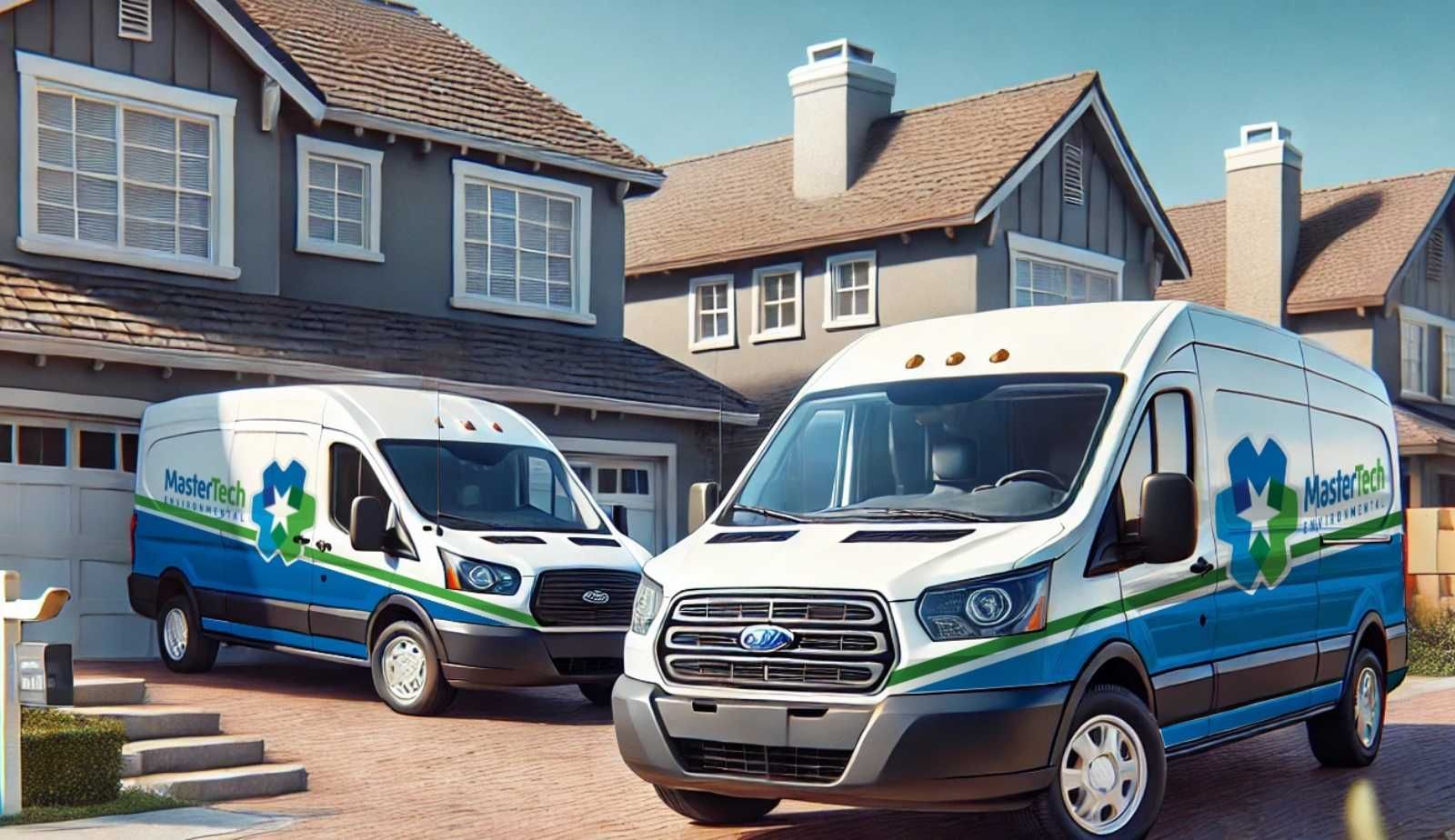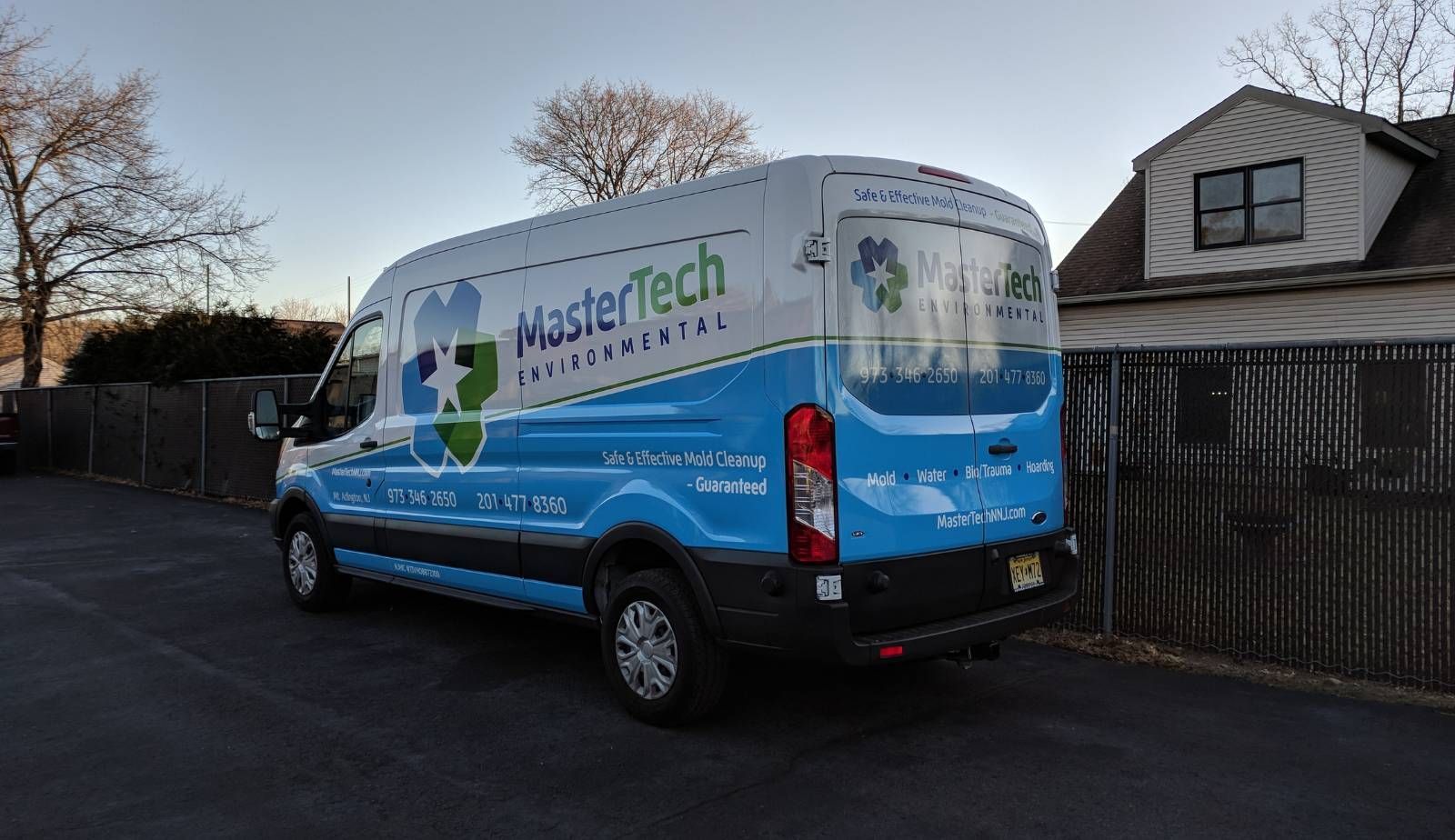Veterans in Franchising: Mastertech's Structured Support and Growth Opportunities for Ex-Military

Veterans bring valuable skills and experience to the business world, making them excellent candidates for franchising opportunities. Veterans account for 14% of franchisees nationwide, demonstrating their success in this entrepreneurial path. Mastertech offers a compelling option for veterans seeking to leverage their military training in a civilian career.
Mastertech provides veterans with a structured business model that aligns well with their disciplined approach and leadership abilities. The company's comprehensive training programs and ongoing support systems create a familiar environment for those transitioning from military service. This structured support allows veterans to apply their problem-solving skills and attention to detail in a new context.
The potential for growth within Mastertech is significant, offering veterans the chance to build and expand their own businesses. Leadership opportunities abound, as veterans can utilize their team management experience to develop strong crews and deliver high-quality services. With franchising being an ideal career path for veterans, Mastertech stands out as a particularly fitting choice for those looking to embark on a rewarding post-military career.
Understanding Franchising
Franchising offers a proven business model for entrepreneurs seeking a structured path to business ownership. This system provides established brands, operational support, and growth potential while requiring adherence to specific guidelines and financial commitments.
Basics of the Franchise Model
The franchise model involves a contractual relationship between franchisors and franchisees. Franchisors grant franchisees the right to use their brand name, business systems, and products or services in exchange for fees and royalties.
Franchisees benefit from a recognized brand and tested business model. They receive training, marketing support, and operational guidelines. This structure can reduce the risks associated with starting a new business from scratch.
Franchise fees typically include an initial investment and ongoing royalties. These costs vary widely depending on the brand and industry. In return, franchisees gain access to established customer bases and proven revenue streams.
Franchise Ownership Responsibilities
Franchise owners must adhere to the franchisor's operational standards and brand guidelines. This ensures consistency across all franchise locations, maintaining the brand's reputation and customer expectations.
Franchisees are responsible for day-to-day operations, including hiring and managing staff, maintaining inventory, and providing customer service. They must also handle local marketing efforts, although often with support from the franchisor.
Financial management is crucial. Owners must track expenses, manage cash flow, and meet royalty payment obligations. They are also responsible for complying with local regulations and laws pertaining to their business.
Support Systems in Franchising
Franchisors provide comprehensive support systems to help franchisees succeed. This often includes initial training programs covering operational procedures, brand standards, and business management techniques.
Ongoing support typically encompasses marketing assistance, technology systems, and operational guidance. Many franchisors offer regular site visits, performance evaluations, and opportunities for franchisees to network and share best practices.
Supply chain management is another key support area. Franchisors often negotiate bulk purchasing agreements, ensuring franchisees can obtain necessary products and supplies at competitive prices. This can significantly impact a franchise's profitability and operational efficiency.

Benefits of Franchising for Veterans
Franchising offers veterans unique advantages that align well with their military experience and skills. The structured nature of franchise systems provides a familiar environment for veterans transitioning to civilian life.
Translating Military Skills to Business
Veterans possess valuable skills that transfer seamlessly to franchise ownership. Leadership abilities honed in the military prove essential in managing a franchise team. The discipline and attention to detail cultivated during service contribute to consistent execution of franchise systems and procedures.
Veterans' experience with teamwork and chain of command structures aids in effective communication within the franchise network. Their ability to follow standard operating procedures aligns with franchise models that rely on replicating proven systems.
The problem-solving and adaptability skills developed in the military help veterans navigate challenges in business operations. Their resilience and determination, forged through military service, become assets in overcoming obstacles in franchise ownership.
Network and Community Building
Franchising provides veterans with a built-in support network. Franchise organizations often have dedicated programs for veteran franchisees, fostering connections among military-affiliated business owners. This community offers mentorship, shared experiences, and collaborative problem-solving.
Veteran franchisees can leverage their military networks to build customer bases and find potential employees. The camaraderie developed in service often extends to business relationships, creating a supportive environment for growth.
Franchise systems typically offer ongoing training and support, helping veterans stay current with industry trends and best practices. This continuous learning environment resonates with the military's emphasis on skill development and improvement.
Veteran Incentives and Discounts
Many franchise companies offer special incentives for veterans, recognizing their unique qualifications and service. These incentives may include reduced franchise fees, financing assistance, or additional training support.
Some franchisors participate in programs like VetFran, which connects veterans with franchise opportunities and resources. These initiatives can significantly reduce the financial barriers to franchise ownership for veterans.
Veteran-specific franchise incentives often extend beyond initial investments. Ongoing support, such as marketing assistance or operational guidance, may be enhanced for veteran franchisees. These programs demonstrate the franchise industry's commitment to supporting veteran entrepreneurship.
Key Advantages of Mastertech for Veterans
Mastertech offers several compelling benefits for veterans transitioning to civilian careers. The company's structure and values align well with military experience, providing opportunities for growth and leadership.
Leadership Opportunities at Mastertech
Mastertech recognizes the valuable leadership skills veterans bring to the table. The company provides a clear path for veterans to utilize their command experience in a business setting. Veterans can lead teams, manage projects, and make crucial decisions.
Mastertech's franchise model allows veterans to become business owners, applying their strategic thinking and organizational abilities.
The company offers leadership roles that match veterans' expertise in areas such as:
- Team management
- Strategic planning
- Crisis response
- Resource allocation
These positions leverage veterans' abilities to perform under pressure and adapt to changing situations.
Education and Ongoing Support
Mastertech provides comprehensive training and support to ensure veterans succeed in their new roles. The company offers:
- Initial training programs
- Ongoing education opportunities
- Technical skill development
- Business management courses
This support system helps veterans transition smoothly into the mold remediation and damage restoration industry. Mastertech's commitment to education aligns with veterans' appreciation for proven systems.
The company also offers mentorship programs, pairing new franchise owners with experienced operators. This guidance helps veterans navigate the challenges of business ownership.
Cultural Alignment and Mission
Mastertech's corporate culture resonates strongly with veterans' values and sense of purpose. The company's mission to protect and restore properties aligns with veterans' dedication to service and community support.
Key cultural aspects include:
- Emphasis on teamwork
- Commitment to excellence
- Focus on community impact
Veterans find Mastertech's structured approach familiar, as it mirrors military protocols. This similarity eases the transition to civilian work.
The company's brand recognition in the restoration industry provides veterans with a solid foundation for business success. Mastertech's reputation for quality service complements veterans' commitment to high standards and integrity.

Success Stories: Veterans in Franchising
Veterans have achieved remarkable success in franchising, leveraging their military skills to build thriving businesses. Their stories showcase the power of combining military discipline with entrepreneurial drive.
Spotlight on Successful Veteran Franchisees
John Smith, a former Army sergeant, opened his first Mastertech franchise in 2018. Within three years, he expanded to three locations, employing 20 people. Smith credits his military leadership experience for his success in managing teams and meeting customer expectations.
Sarah Johnson, a Navy veteran, transitioned to franchising after 12 years of service. Her Mastertech franchise quickly became the top performer in her region. Johnson's attention to detail and commitment to excellence, honed during her military career, set her business apart.
Case Studies: From Military to Mastertech
Mike Davis, an Air Force veteran, found Mastertech's structured support system aligned perfectly with his military background. Davis appreciated the clear operational guidelines and ongoing training provided by Mastertech, which helped him achieve profitability within his first year.
Emily Rodriguez, a former Marine, successfully adapted her tactical planning skills to business strategy at Mastertech. Her franchise consistently exceeded growth targets, and she now mentors other veteran franchisees.
These success stories highlight how veterans' unique skill sets translate effectively into franchising, particularly within Mastertech's supportive framework.
Strategic Planning for Franchise Investments
Effective strategic planning is crucial for veterans considering franchise investments. It involves thorough market analysis, financial preparation, and setting clear long-term objectives.
Analyzing Market Opportunities
Veterans should conduct comprehensive market research to identify promising franchise sectors. This includes studying local demographics, consumer trends, and competition.
Entrepreneurs can use tools like surveys and focus groups to gauge demand for specific products or services. Analyzing economic indicators and industry growth projections helps assess long-term viability.
Veterans should leverage their military experience in data analysis and strategic thinking to evaluate franchise opportunities objectively. They can consult with franchise advisors or attend industry trade shows to gain insights into emerging markets.
Understanding Start-Up Costs
Accurately estimating start-up costs is critical for franchise success. Veterans need to review the Franchise Disclosure Document carefully, which outlines initial investments and ongoing fees.
Key start-up expenses often include:
- Franchise fee
- Real estate and construction costs
- Equipment and inventory
- Initial marketing expenses
- Working capital
Veterans should create a detailed budget, factoring in potential delays or unexpected expenses. They may qualify for special financing options or discounts on franchise fees through programs like VetFran.
Long-term Goal Setting
Establishing clear, measurable long-term goals is essential for franchise success. Veterans should define objectives for revenue growth, market share, and expansion plans.
Goals might include:
- Achieving profitability within a specific timeframe
- Opening additional locations
- Diversifying product or service offerings
- Building a strong local brand presence
Regular review and adjustment of these goals help franchisees stay focused and adaptable. Veterans can apply their military training in mission planning to develop realistic timelines and milestones for their franchise business.

Navigating Challenges as a Veteran Entrepreneur
Veterans transitioning to entrepreneurship face unique obstacles but possess valuable skills to overcome them. Adapting military experience to civilian business practices requires determination and a willingness to learn.
Overcoming Business Ownership Hurdles
Veterans may encounter challenges in understanding complex business models and financial management. Many find the transition from a structured military environment to the unpredictable world of entrepreneurship daunting. To succeed, veterans should leverage their leadership skills and discipline.
Networking becomes crucial in civilian business. Veterans can join entrepreneur groups and attend industry events to build connections. They should also seek mentors with business experience to guide them through unfamiliar territory.
Financial management often presents a steep learning curve. Veterans should consider taking courses in business finance or working with financial advisors to develop sound strategies for their ventures.
Skillset Adjustment and Learning
While military training provides a strong foundation, veterans may need to acquire new skills for business success. Technical knowledge, marketing expertise, and customer service skills are often essential in entrepreneurship.
Many veterans find success by pursuing additional education or certifications relevant to their chosen industry. Online courses and workshops offer flexible learning options for busy entrepreneurs.
Adapting communication styles is crucial. Military directness may need softening in civilian business interactions. Veterans should practice active listening and empathy to build strong customer and employee relationships.
Problem-solving skills from military service translate well to business challenges. Veterans should apply their analytical thinking to identify market opportunities and innovative solutions for their ventures.
Resources and Support for Veteran Franchisees
Veterans entering franchising have access to valuable programs and networks designed to support their success. These resources provide financial assistance, training, and connections to help veterans thrive as franchise owners.
Utilizing VetFran and Other Programs
The VetFran Program offers significant benefits to veterans interested in franchising. VetFran partners with over 500 franchise brands to provide discounts, mentorship, and training opportunities specifically for veteran entrepreneurs.
The International Franchise Association (IFA) sponsors VetFran, connecting veterans with franchise opportunities across various industries. Many franchisors offer reduced franchise fees, special financing options, or additional training to veteran franchisees through this program.
Other support programs include:
- Small Business Administration's Boots to Business program
- SCORE's Veteran Fast Launch Initiative
- Entrepreneurship Bootcamp for Veterans with Disabilities (EBV)
These initiatives provide business education, mentoring, and resources tailored to veterans' needs in franchising.
Connecting with Veteran Business Owner Networks
Networking with fellow veteran entrepreneurs can provide invaluable insights and support. The International Franchise Association hosts events and forums specifically for veteran franchisees to connect and share experiences.
Veterans can also join organizations like:
- National Veteran-Owned Business Association (NaVOBA)
- Veteran Business Outreach Centers (VBOCs)
- American Legion's Business Task Force
These networks offer mentorship opportunities, business resources, and a chance to learn from other veterans who have successfully transitioned into franchise ownership. Participating in these communities can help veteran franchisees navigate challenges and capitalize on opportunities unique to their experience.
Frequently Asked Questions
Veterans considering a Mastertech franchise often have specific questions about leadership roles, support systems, and growth potential. These inquiries reflect their desire to find a business opportunity that aligns with their military experience and future goals.
How does Mastertech's business model provide leadership opportunities for veterans?
Mastertech's franchise model allows veterans to lead their own teams and make strategic decisions. Franchisees oversee operations, manage staff, and drive business growth.
Veterans can apply their military leadership skills to motivate employees and achieve operational excellence.
What structures does Mastertech have in place to support veteran franchisees?
Mastertech offers a comprehensive support system for veteran franchisees. This includes initial training programs, ongoing operational guidance, and marketing assistance.
The company provides access to proven business systems and technology platforms to streamline franchise management.
What growth potential does a Mastertech franchise offer to veterans seeking entrepreneurship?
Mastertech franchises present significant growth opportunities for veterans. The environmental services industry continues to expand, creating demand for professional remediation services.
Franchisees can scale their businesses by adding service lines, expanding service areas, or opening multiple locations.
In what ways does Mastertech's franchise system align with military-acquired skills?
Mastertech's franchise system values discipline, attention to detail, and adherence to protocols—qualities ingrained in military personnel. Veterans can leverage their ability to follow established systems within Mastertech's operational framework.
The company's emphasis on teamwork and mission accomplishment resonates with veterans' experiences.
How do Mastertech's values resonate with the experiences of veterans?
Mastertech's commitment to service and community impact aligns with many veterans' desire to continue serving others. The company's focus on integrity and professionalism mirrors military values.
Veterans often find fulfillment in Mastertech's mission to create healthier living environments for customers.
What training and ongoing support can veterans expect when franchising with Mastertech?
Veterans receive comprehensive initial training covering technical skills, business operations, and customer service. Mastertech provides continuous education to keep franchisees updated on industry trends and best practices.
The company offers mentorship programs and networking opportunities with other franchisees, fostering a supportive community.
Get in Touch
Contact Us
Don't be a stranger!
30 Broad St, Unit 7
Denville, New Jersey 07834



